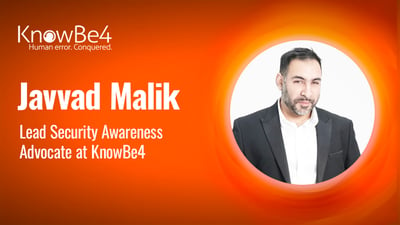 In the rapidly evolving landscape of artificial intelligence (AI), the launch of Sora by OpenAI marks an unnerving milestone in video synthesis.
In the rapidly evolving landscape of artificial intelligence (AI), the launch of Sora by OpenAI marks an unnerving milestone in video synthesis.
The unveiling of such revolutionary technology is simultaneously exciting and raises red flags to the broader implications of AI's role in digital content creation and cybersecurity.
The potential of Sora to generate up to one-minute video clips from mere text input is staggering. This leap mirrors the advancements seen with Dall-E for image generation, but the addition of dynamic elements like reflection, texture, and physics over time introduces a new realm of authenticity to AI-generated content.
Several examples of its capabilities are on the open AI website which include examples such as a stylish woman walking down a neon-lit Tokyo street to a vintage SUV speeding up a dirt road. At first glance, these videos look authentic, but the closer we scrutinize these videos, the more we uncover imperfections.
But as these models improve at a breakneck pace, the distinction between real and synthetic becomes blurrier. This blurring raises profound ethical questions, notably in how AI-generated content can be used or misused. For instance, while this technology could revolutionize stock footage, saving time and resources, it simultaneously poses risks of misinformation, particularly in sensitive contexts like elections or public opinion molding.
The impersonation of public figures or the creation of fictitious yet realistic events could have dire consequences if used maliciously. We have already seen previous examples of videos being altered to create suspicion. For instance, a few years ago, a distorted video of U.S. House Speaker Nancy Pelosi appeared to show her slurring her words, fuelling rumours about her health condition.
So while OpenAI has included watermarks to indicate AI generation, the threat of cropping or other manipulations to conceal this indicator persists.
The introduction of Sora signifies a future where the line between digital creation and reality becomes increasingly indistinct. This innovation could democratise video production, allowing creators to manifest their visions without the traditional barriers of videography. Yet, it underscores the pressing need for strict ethical guidelines and robust cybersecurity measures to mitigate potential abuses.
Social engineering already is the preferred way for cybercriminals to break into organisations. With more AI tools emerging, these can be easily used to speed up attacks, as well as make them far more convincing. In light of this, the cybersecurity industry does not just need a proactive approach to establish frameworks to ensure AI is developed with appropriate safeguards in place, but also to help educate and train people on what AI-powered attacks look like, how to spot them, and how to respond to them. Taking this a step further, we need to build secure behaviours and a strong security culture where people are vigilant to the threats.
In a world already riddled with deepfakes, AI, and misinformation, AI-powered videos become another tool in the arsenal of criminals. There is no silver bullet approach, rather a multilayered approach which combines technological and regulative means, along with heightened public awareness is necessary.
As we look forward to the innovations the next year will bring, it's critical to acknowledge that this is only the beginning. The journey ahead for AI in video creation is filled with possibilities – both amazing and worrying. Let's embrace the future with open eyes and a steadfast commitment to guiding this technology responsibly.
 Security Awareness Training is critical to enabling you and your IT staff to connect with users and help them make the right security decisions all of the time. This isn't one and done. Continuous training and simulated phishing are both needed to mobilize users as your last line of defense. Request your one-on-one demo of KnowBe4's security awareness training and simulated phishing platform and see how easy it can be!
Security Awareness Training is critical to enabling you and your IT staff to connect with users and help them make the right security decisions all of the time. This isn't one and done. Continuous training and simulated phishing are both needed to mobilize users as your last line of defense. Request your one-on-one demo of KnowBe4's security awareness training and simulated phishing platform and see how easy it can be!




